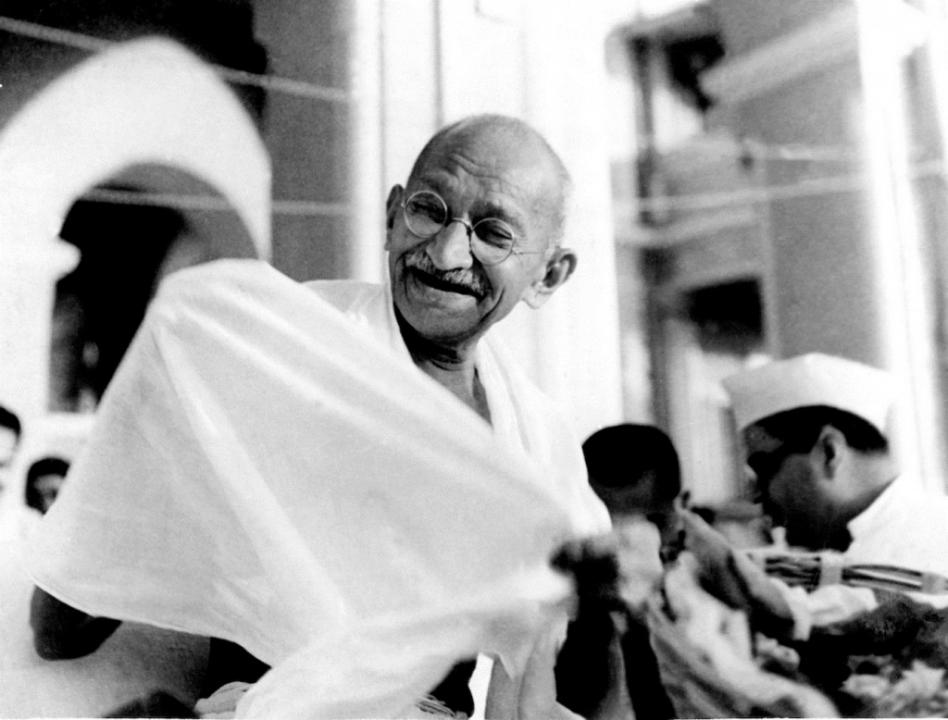Mahatma Gandhi’s Vision for Education Essay
An Essay on Mahatma Gandhi’s Vision for Education: Learn about Mahatma Gandhi’s philosophy about education and how he thought education could bring about change. Read this essay that will make you think to find out more.
You can also find more Essay Writing articles about events, people, sports, technology, and many other things.
An Essay on Mahatma Gandhi’s Vision for Education
Essay on the Educational Vision of Mahatma Gandhi: The world-famous teachings of Mahatma Gandhi revolve around the concepts of ahimsa (nonviolence), satyagraha, and self-reliance. He is referred to as the Father of the Nation because he led the independence movement and ensured India’s independence.
Gandhi’s Educational Philosophy is a beacon for students, illuminating the path to becoming the most brilliant minds of the century. It can teach us how to transform the world into a more just and equitable place. Students can consult the following essays as resources.
Long and Short Essays on the Educational Vision of Mahatma Gandhi in English for Students
There is a 500-word long essay and a 100-word short essay. These are followed by a summary of the compositions and answers to some frequently asked questions in ten lines.

500-word English Essay on Mahatma Gandhi’s Vision for Education
The Educational Philosophy essay by Mahatma Gandhi is intended for students in classes 7, 8, 9, and 10.
Education, according to Mahatma Gandhi, was one of the most crucial aspects of the functioning of the individual, society, and the world as a whole. A nation with educated youth can develop much more rapidly than one with an uneducated populace. He asserted that every child in India must be educated because education is the key to a prosperous life. His ideologies included:
Gandhiji desired to provide a free, mandatory, and standardized primary education between the ages of 7 and 14.
- Gandhiji believed that the highest advancement of body and spirit was only achievable through handicrafts. He believed that self-sufficiency could be achieved by learning the mechanical tasks involved in the production of handicrafts.
- Gandhiji believed that the issue of primary education for the masses could not be postponed for even a moment. The central education system cannot be terminated due to a lack of funding. Students were unable to wait until the governing party had gathered the necessary funds. Additionally, he stated that education would be self-sufficient.
- One of the apparent flaws of the current educational system is the use of a foreign language, namely English, as the medium of instruction. It prevented the production of comprehension, precision, and mental consistency.
- Concept of nonviolence: Gandhiji’s educational philosophy was distinguished by the application of the concept of nonviolence to the education of the infant as a future global citizen. The universal education system (Buniyadi Shiksha) is infused with the fundamental doctrine of nonviolence and the principle of cooperative living.
Gandhi’s educational concepts based on these universal values do not lose their fundamental significance over time. The plans would need to envision a self-sustaining primary education that would improve the condition of the lowest members of the community. The argument that the emphasis of this education should be on the experience, problem-solving, and constructive practice, as opposed to pure book study, is entirely valid.
Integral education, which allows an individual’s total being to evolve, and which emphasizes character development and cultural identification, is once again evidently desirable. It is equally evident that our state-sponsored programs to provide free, mandatory education to all have failed miserably.
Learn More About Mahatma Gandhi’s Thoughts on Education
As a result, the Gandhian paradigm retains its significance and allure. However, it remains to be seen if this knowledge can be acquired solely or primarily through the study of art, and if future recipients and the state approved. Lastly, the Gandhian paradigm necessitates, in my opinion, an interconnected framework for integrating or addressing the ever-evolving older and newest innovations.
Incorporating knowledge of computers, mobile devices, and the internet, as well as the advantages of Artificial Intelligence, into such frameworks is necessary. As it stands, it tends to be quite retrograde or, at the very least, designed for a culture in which ancestral jobs remain unchanged from generation to generation. I believe the coming era will be marked by extraordinary and unprecedented changes.
However, this does not imply that Gandhi’s enduring values, which he embodied and championed, will lose their significance. In light of this, we will need to find new and different ways to interpret, recognize, communicate, and live them out.
A Short Essay on Mahatma Gandhi’s Educational Vision, 100 Words in English
The Educational Vision essay by Mahatma Gandhi is aimed at students in classes 1,2,3,4,5, and 6.
Mahatma Gandhi championed the cause of education and instructed students on how to be independent and independent of the British. To this end, he desired that schools conduct classes in the regional mother tongue. He was adamant that craft education would benefit students and promote a healthy balance between mental and physical labor.
Self-reliance and nonviolence were incorporated into his educational philosophy. Gandhi had a contemporary view of creation, education, and society. He utilized the three major educational philosophies in his writings. These were the naturalism, idealism, and pragmatism concepts. His teachings will serve as an inspiration for future generations of students.

